Camera Traps Capture the Largest-Ever Photo Study of Amazon Wildlife
A new study that represents the largest photo database ever made consists of more than 120,000 photos taken in eight countries in the Amazon. It highlights the staggering array of wildlife in the region.
While the Amazon forest has the highest biodiversity on Earth, information on the animals in the region is still deficient and scattered across a mixture of published papers (both peer-reviewed and “grey” literature) as well as unpublished raw data. The study’s authors set out to address that. They organized and standardized camera trap records from different amazon regions to compile the most extensive dataset of mammal, bird, and reptile species ever assembled in the area.
This is the first time that photos taken from camera traps across different regions of the Amazon have been compiled and standardized on such a large scale.
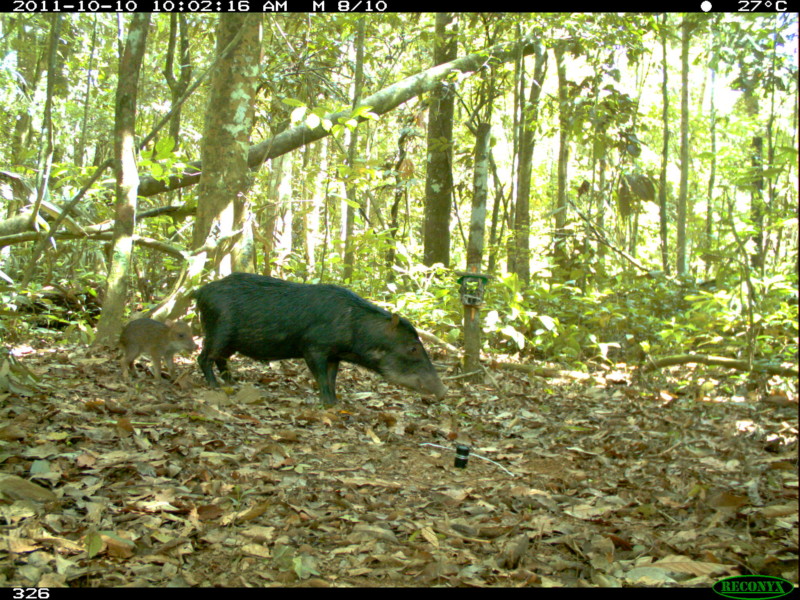
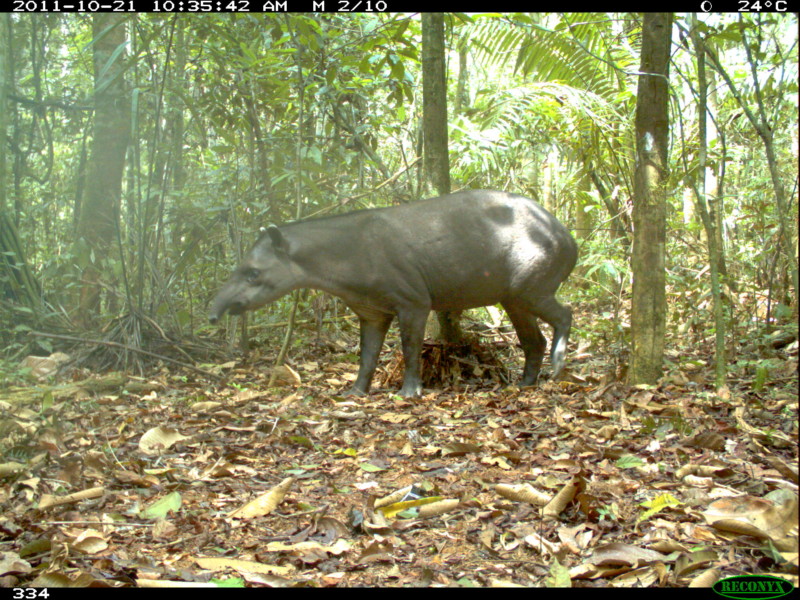
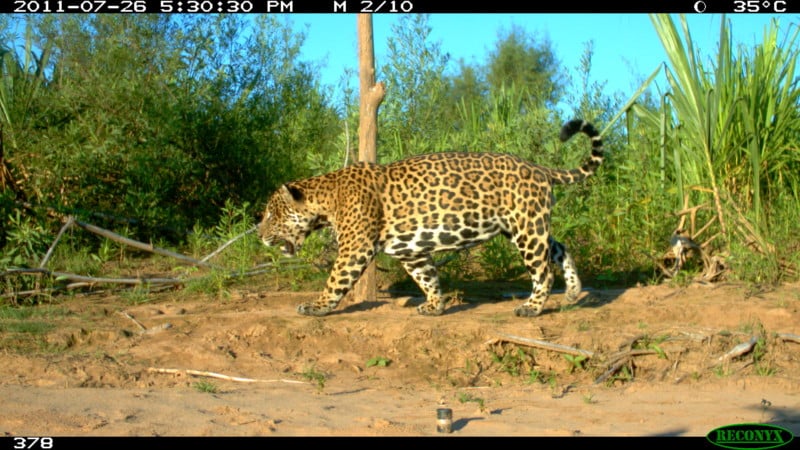
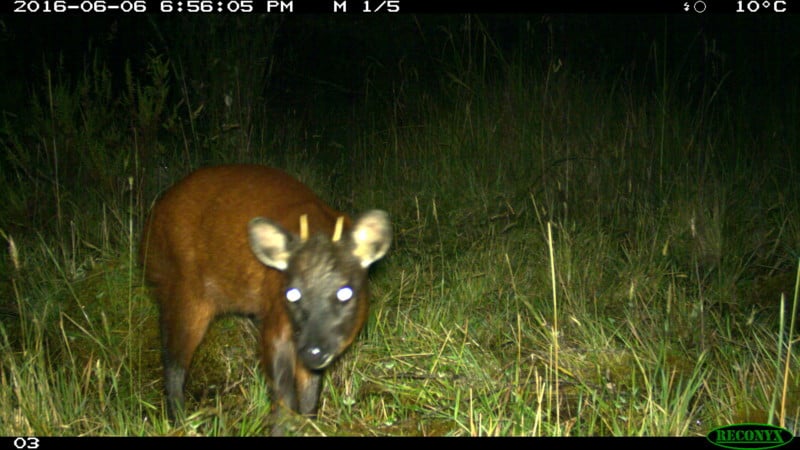
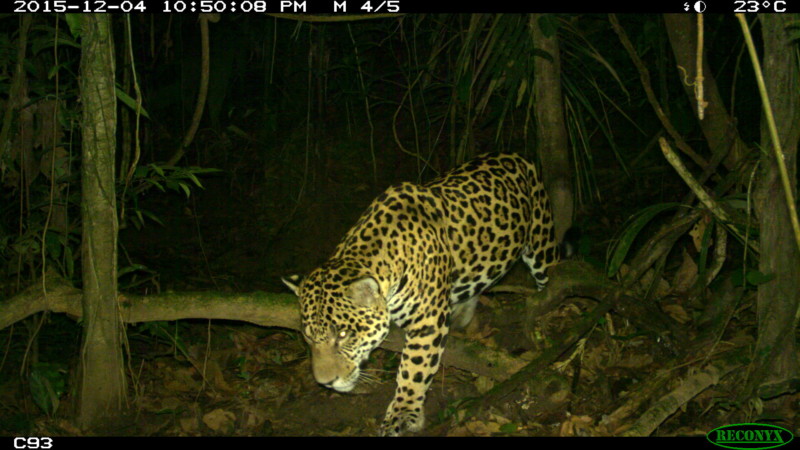
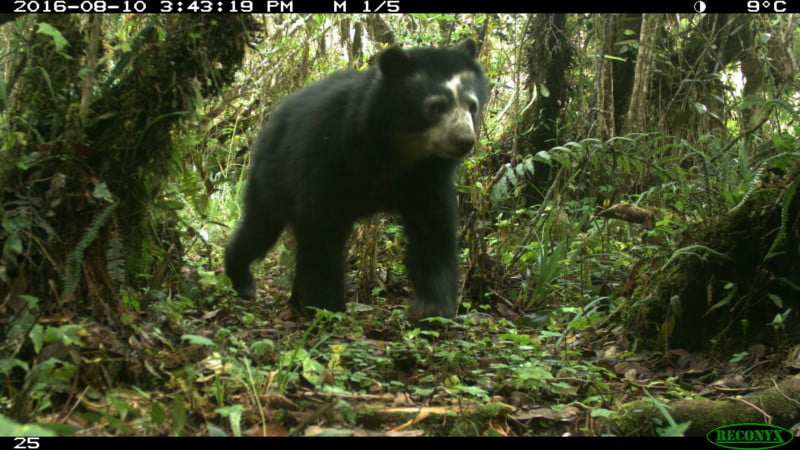
The complete dataset comprises 154,123 records of 317 species (185 birds, 119 mammals, and 13 reptiles) gathered from surveys from the Amazonian portion of eight countries (Brazil, Bolivia, Colombia, Ecuador, French Guiana, Peru, Suriname and Venezuela).
“The most frequently recorded species per taxa were: mammals – Cuniculus paca (11,907 records); birds – Pauxi tuberosa (3,713 records); and reptiles – Tupinambis teguixin (716 records),” the study, published on ESA Journals, notes.
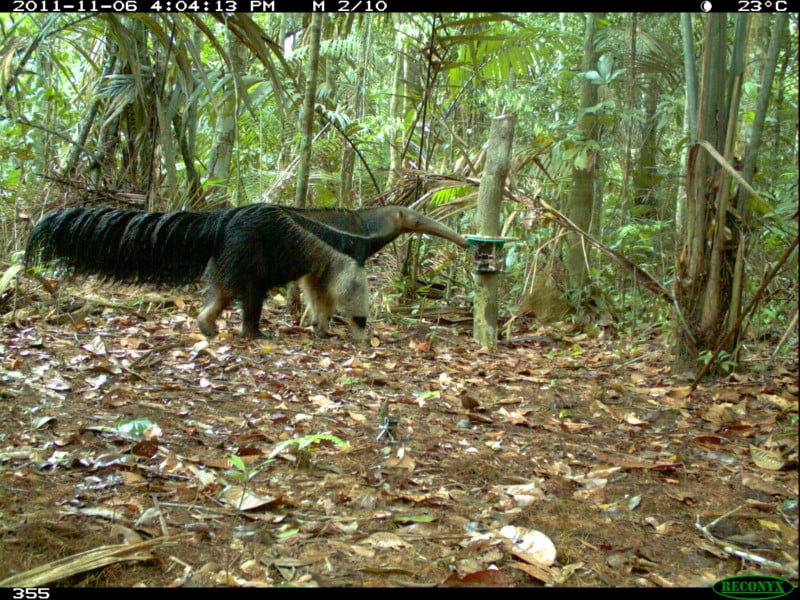
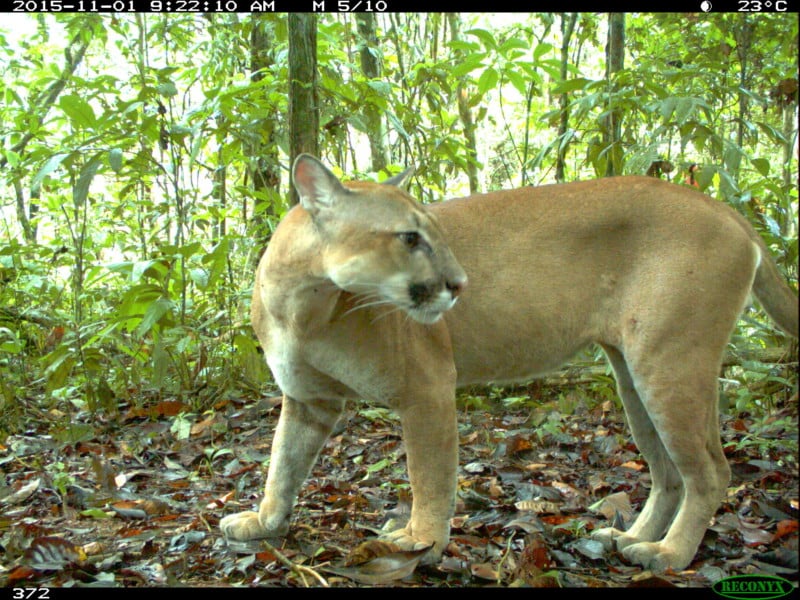
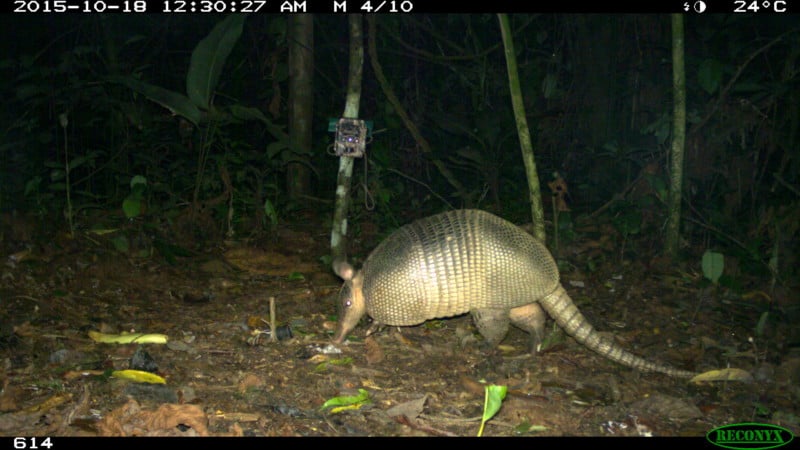
Of those 120,000 photos, the Wildlife Conservation Society (WCS) provided more than 57,000 that show 289 species taken from 2001 through 2020 from 143 field sites.
“The purpose of the study is to build a database of Amazon wildlife images, while also documenting habitat loss, fragmentation and climate change,” the WCS explains.
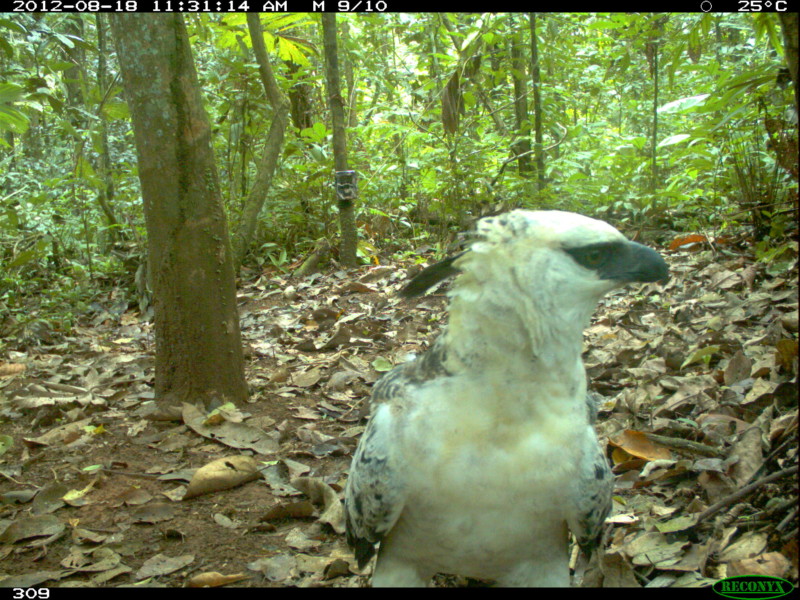
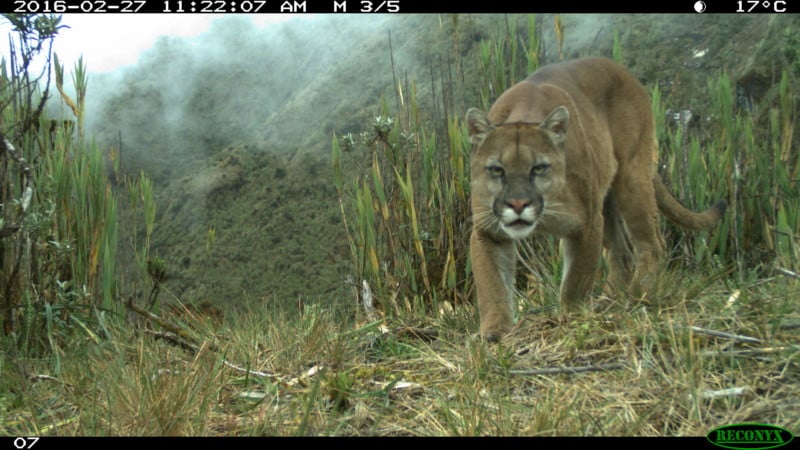
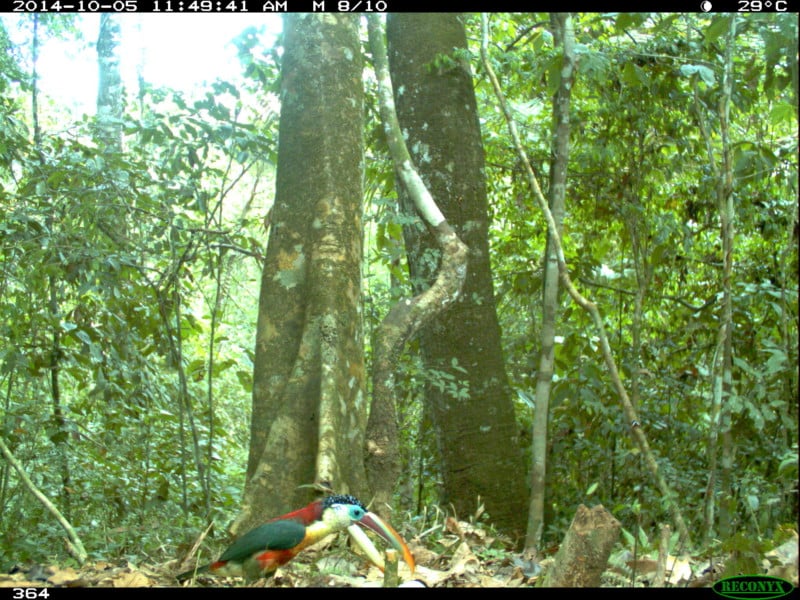
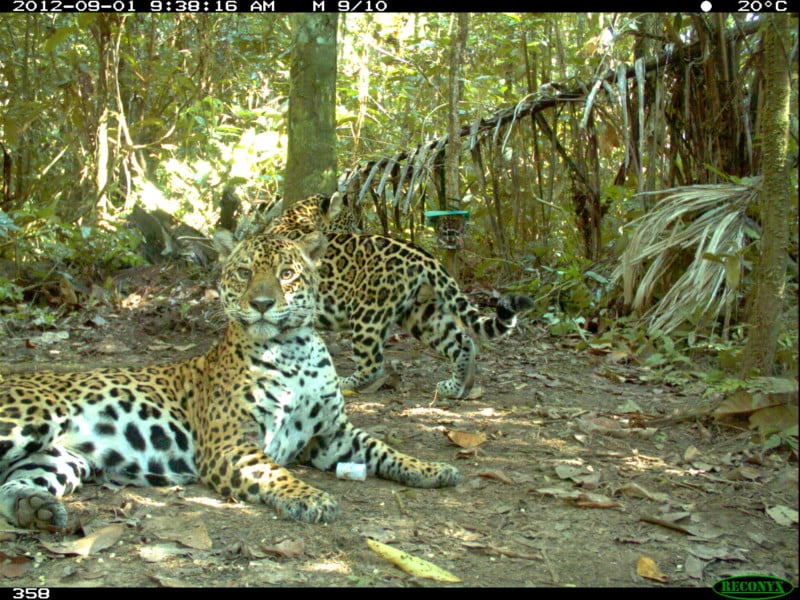
The Amazon Basin covers nearly 3.2 million square miles (8.5 million square kilometers) in Brazil, Bolivia, Colombia, Ecuador, French Guiana, Peru, Suriname, and Venezuela.
“WCS scientists were proud to collaborate with such a diverse group of scientists and organizations on this important study. The tens of thousands of images WCS provided will serve as critical data points to show where wildlife occurs and the staggering diversity of species found in the Amazon region,” Robert Wallace, Director of WCS’s Greater Madidi-Tambopata Landscape Program, and a co-author of the study, says.
![]()
Camera traps have proven critical for wildlife research because of the non-invasive way they are able to document animals in a region.
“For species that are individually recognizable, like jaguars or ocelots, we can even calculate population densities and then estimate how many occur in a given area,” Wallace tells TreeHugger.
![]()
![]()
“Many of the most cryptic species are incredibly difficult to study because they are so hard to observe, either because they are rare, shy, nocturnal, or all three, but multiple camera traps left in the forest for 1-2 months or more can observe them for us,” he continues.
![]()
![]()
“With the advent of digital cameras, we can now monitor camera traps when we visit them to check batteries and SD cards periodically in the forest, but prior to that we had to wait to develop sometimes hundreds of film rolls before we knew what we had photographed!” Wallace says. “Our camera traps are precious and sometimes we have to rescue them from sudden flooding events.”
![]()
![]()
Wallace says that with increasing concerns about climate change, these images will serve as a baseline that he and other scientists can use as a way to monitor change over time into the future.
“It is also important to stress that analytical techniques are constantly evolving and making these data available is a huge step forward for science and wildlife in the Amazon,” he says.
Image credits: Photos provided courtesy of the WCS.